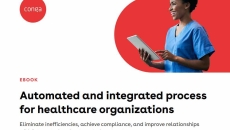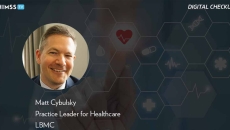Workflow
Peak body RACGP has recently released its guidance for adopting the technology.
While most healthcare organizations (HCOs) have processes in place around contract creation, procurement and onboarding, these processes are generally manual, costly and time-consuming. This results in visibility gaps that increase the likelihood of errors, omissions or contract delays.
SPONSORED
Across industries, IT leaders’ top priorities include eliminating unnecessary expenses, boosting efficiency and generating revenue through improved customer experiences. Implementing a unified communications platform like RingCentral’s can help businesses modernize their practices and realize these goals.
What are the trends in digital health implementation across health systems, and what needs to be considered when applying AI for value-based care? Matt Cybulsky, LBMC practice leader for healthcare AI, value-based care and product innovation, discusses.
Lisa Hanselmann, Inria's European project manager, talks about how the FLUTE project is building a GDPR-compliant federated learning platform to allow researchers to share both real-world and synthetic data on prostate cancer.
Adding long-range healthcare drones into prescription delivery and lab services, along with supporting health-at-home programs, can reduce care costs and delays, and improve patient experiences, says Keenan Wyrobek, cofounder of Zipline.
Prolonged understaffing in clinical laboratories threatens to compromise patient care, but deployment of automation and artificial intelligence technologies could offer a lifeline to burned out lab workers.
HIMSS24
AI-powered radiology tools aren't yet ready to make diagnoses; they must return accurate results and save time to be truly useful to burned-out radiologists, says Dr. Benoit Desjardins, University of Pennsylvania radiology professor.
It consolidates existing data infrastructure across the sector into one common platform.
Memotext's digital therapeutic app for mental health patients can help caregivers engage with patients and identify the risks for relapse and readmission, says company founder Amos Adler, who discusses the markets in each country.









